Peptides For Skin: What Are They, Benefits, And Side Effects
You get smoother, firmer skin with this collagen-boosting ingredient.
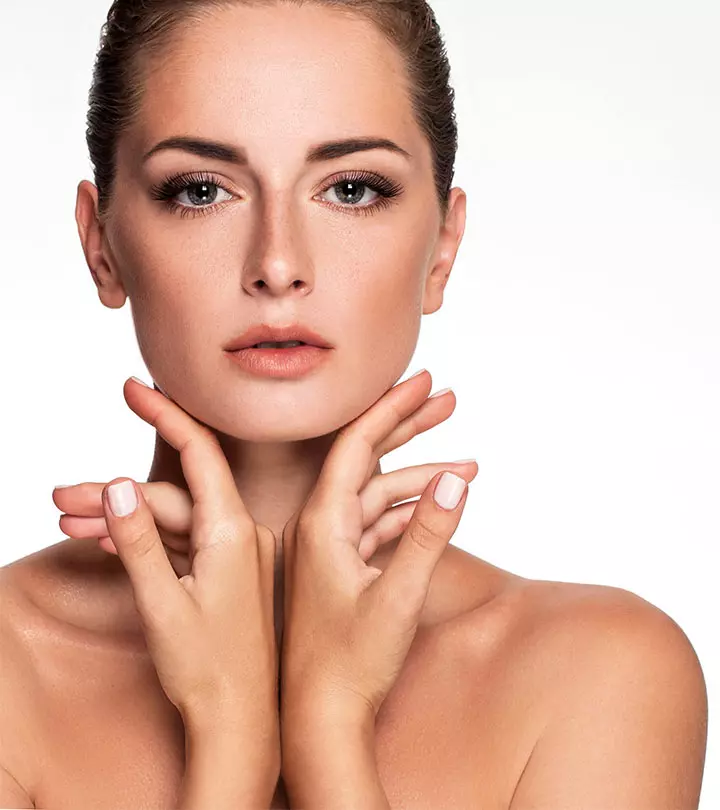
Image: Shutterstock
Serums, lotions, night creams, emulsionsi A combination of two or more insoluble liquids, one of which is processed to distribute as tiny drops across the other liquid uniformly. , or be it any other skin care product, you will find that peptides are one of the most commonly used cosmetic ingredients. Peptides for skin serve multiple purposes, and there are so many reasons why they are found in almost all products.
Peptides naturally occur in the skin and are crucial for collagen production and skin rejuvenation. In other words, applying peptides to your skin can help it make collagen, giving you a youthful skin texture and reducing fine lines. Sounds intriguing, right? Read on to learn more about the benefits of peptides, what else they can do for your skin, and how to use them.
 Know Your Ingredient: Peptide
Know Your Ingredient: PeptideWhat Is It?
A short chain of amino acids.
What Are Its Benefits?
Improves overall skin health, boosts collagen production, and reduces inflammation and anti-aging signs.
Who Can Use It?
Suitable for all skin types.
How Often?
Once a day in the form of a serum.
Caution
Avoid using products with AHAs along with peptides. Perform a patch test on the skin before use.
In This Article
What Are Peptides?

Peptides are chains of amino acids and building blocks of proteins in your body. When amino acids combine in various formations, they create a variety of peptides. And when peptides are formed in a certain way, they create specific proteins.
If you are wondering why this information is important, read on.
Proteins are the most basic building blocks of your skin, organs, and tissues. And collagen is one of the most important proteins in your body. About 75%-80% of your skin is made up of collagen protein. You get a natural glow without using chemicals when you take in the naturally occurring peptides for skin from various food sources.
There are also different types of peptides beneficial for the skin, such as signal peptides to boost collagen production, carrier peptides for delivering trace elements, enzyme-inhibitor peptides to reduce aging signs, and neuropeptides to relax wrinkles and fine lines.
That’s why when your collagen production is optimal, your skin looks beautiful. And this is where peptides can help you—by boosting your collagen production and reducing skin-aging factors. Let’s explore this in detail.
Key Takeaways
- Proteins in peptides help to increase collagen production in the skin and give it a younger appearance.
- Milk, eggs, soybeans, fish, and meat all contain peptides.
- By improving skin elasticity, peptides help to tighten the skin.
- Some individuals may develop rashes, itching, redness, or skin inflammation due to peptides.
What Do Peptides Do For Your Skin?
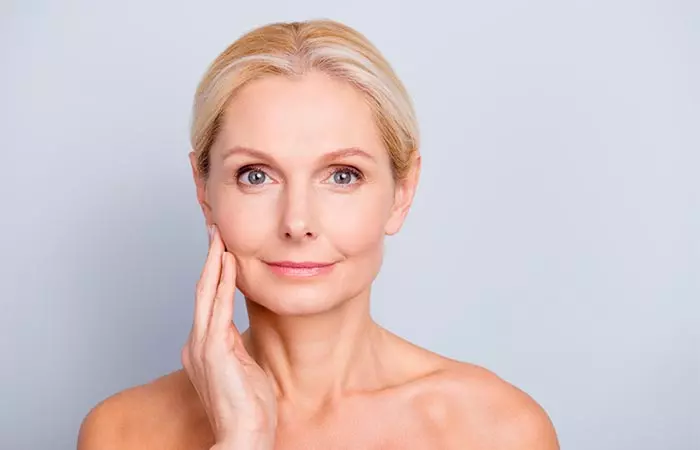
With age, the collagen production declines. As a result, your skin sags and loses its elasticity, and you get wrinkles. Incorporating peptides into your skin care routine can help to a great extent as they aid in moisturization and boost the skin barrier function. You can use both topical and oral peptides (which we’ve discussed later). Here’s how peptides help your aging skin:
1. They Have An Anti-Wrinkle Effect On Your Skin
In a double-blindi A study where neither the investigators nor the subjects are informed of the treatment the latter receives until the study is complete. clinical study, researchers studied 20 women between the ages of 40 and 62 years. They were given a formula containing 3% collagen-like peptide and 1% booster molecule. They applied the gel on their eye area for four weeks. The results showed a significant reduction in the surface as well as the depth of wrinkles (1).
2. They Help Reduce Erythema
Erythema or redness of the skin may occur due to a variety of reasons, including infection, inflammation, or increased blood flow in your superficial capillaries.
A six- month study on 20 subjects found that both Carnosine (a dipeptide molecule) and N- acetylcarnosine (related to the dipeptide Carnosine) can help reduce erythema when applied to the skin. The researchers also found that these two peptides had antioxidant properties (2).
3. It Improves Skin Firmness And Elasticity
In two separate studies, each examining the anti-wrinkle and anti-sagging effects of Trifluoroacetyl-tripeptide-2, it was found that this peptide improved skin firmness and elasticity and reduced skin sagging (2).
4. They Have Anti-Inflammatory Effects
According to a study, palmitoyl tetrapeptide-7 has anti-inflammatory effects on your skin. It suggests that this peptide reduces the secretion of IL-6, thus decreasing inflammation after UVB exposure. A blend of palmitoyl tetrapeptide-7 and palmitoyl oligopeptide also improves the extracellular matrix structure (a network of extracellular macromoleculesi Molecules with specialized roles in cells that contain a large number of atoms. including glycoproteinsi Proteins with many physiological functions with glycans (a type of carbohydrate) attached to them. , enzymes, and collagen that supports the cells) (2).
There are about hundreds of peptides out there. However, only a few are used for skin care. Here’s a breakdown.
Best Peptides For Your Skin
Topical peptides are mainly classified as:
1. Carrier Peptides
These are X-50 Myocept, Copper Peptides, etc.
Carrier peptides help in carrying stabilized trace elements like manganese and copper to your skin. These trace elements help boost collagen development, improve your skin elasticity, promote cellular renewal and aid in wound healing (2). This may aid in dull and aging skin repair. Copper peptides for skin are commonly used in anti-aging skin care.
2. Neurotransmitter Inhibitor Peptides
These are XEP-30, Palmitoyl Tripeptide-38, Palmitoyl tetrapeptide-28 Argireline, Syn-Ake, etc.
Neurotransmitter inhibitor peptides inhibit your muscle contraction, giving your skin a botox-like effect and aiding the wrinkle reduction process. If your muscles do not contract, there is no scope for wrinkle formation. However, this peptide only works on the wrinkles formed by the expression lines and not the ones caused by pollution, sun exposure, and other factors (2).
3. Enzyme Inhibitor Peptides
These are Trylagen, Trifluoroacetyl tripeptide-2, Silk fibroin peptides, Soybean peptides, etc.
These peptides inhibit all the enzymes that break down collagen in your skin. In this way, your skin ages slowly. Most of these peptides usually prohibit the functions of Matrix Metalloproteinases or MMPs. This is a group of enzymes that break down collagen when it develops rapidly (2).
4. Signal Peptides
These are Palmitoyl Oligopeptide-7, Copper Peptides, Palmitoyl Pentapeptide-4, Matrixyl-3000, etc.
As the name suggests, these peptides usually send signals to the skin to boost the production of elastin, collagen, and any other protein that the skin might need to stay fresh and young.
Various experts also list down a few other peptides such as palmitoyl peptides, matrixyl peptides, hexapeptides, pentapeptides, neuropeptides that possess great skin absorption properties and are extremely beneficial for skin health but the research is limited regarding these.
 Quick Tip
Quick TipNow, the question is, how do you get these peptides? Here’s a list of foods you can include in your diet to increase the peptide content in your system.
1. Milk

Milk is one of the most abundant sources of dietary peptides. The bioactive peptides contained in milk were the first food-derived peptides that were widely studied. Milk is rich in whey protein and casein. After digestion, both these components can be processed into a number of peptides that have antimicrobial and therapeutic benefits (3). Just be careful as dairy consumption can cause inflammation. Choose organic and grass-fed varieties as much as possible.
 Quick Tip
Quick Tip2. Eggs
These are rich sources of dietary peptides. The peptides IRW and IQW have anti-inflammatory properties and also contain antioxidants.
3. Soybean

Soybean and many other beans contain peptides that are associated with numerous health benefits. A study claims that soybean peptides have antioxidant and anti-fatigue properties. It also claims that soybean peptide can increase Type I collagen in your body (4).
4. Fish And Meat
Fish, especially marine fish, is a rich source of essential peptides and proteins. The peptides in fish can prevent photoaging of the skin. The fish bones and skin are especially rich in collagen. Marine-derived collagen is mostly used in skin care products and is a very effective free radical scavenger (5).
Even meat, such as pork, beef, and chicken, is a rich source of bioactive peptides (6).
Nutrition is key to get healthy and glowing skin. Oral intake of peptides through food and supplements improves collagen synthesis and skin hydration levels and repairs your skin’s natural barrier (7).
Side Effects Of Peptides

When you start using peptide products, you may notice some side effects and symptoms. These include:
- Redness
- Inflammation
- Itching
- Rash
To avoid this, always make sure to do a patch test before using a product. Also, before using any peptide, make sure to find out whether you are allergic to it or not. It is better to consult a dermatologist before using any skin care product.
If you are wondering whether you can use retinol with topical peptides, then check out the section below.
Can You Use Peptides And Retinol Together?
Using peptides and retinol together in your skin care routine can be beneficial, but it is essential to do so carefully. Combining these ingredients may enhance their effectiveness in addressing various skin concerns, such as fine lines, wrinkles, and collagen production.
Research supporting the simultaneous use of peptides and retinol is limited, but anecdotal studies suggest positive outcomes. The key is to introduce them gradually into your skin care routine to minimize any potential irritation. Start with a lower concentration of retinol and observe how your skin responds. Always use sunscreen during the day after using retinol, as this ingredient may increase your skin’s sensitivity to UV rays. Consult a dermatologist for personalized guidance on incorporating peptides and retinol into your skin care regimen safely.
Infographic: A Guide To Peptides For The Skin
Pollution and unhealthy lifestyle choices can wreak havoc on our skin and make it age faster. Thankfully, ingredients essential to your skin structure can help mitigate the issue. Peptides are growing popular in the world of skin care because they promise to reverse the signs of damage and aging with regular use. We have summarized some basic facts about skin care peptides in the infographic below for your reference. Take a look.

Illustration: StyleCraze Design Team
Peptides are present in almost all anti-aging creams, serums, and lotions. They rebuild your skin, repair cellular damage, improve skin health, and boost collagen production to slow down signs of aging. Peptides are the superstars of any anti-aging skin care routine, and the best part is that these amino acids suit all skin types and rarely cause any irritation. If you want to use peptides for skin care benefits and enhance skin metabolism, get concentrated serums and overnight masks containing peptides. That will allow your skin the time to absorb the ingredient, and you will notice visible results.
You may also consult a doctor before introducing peptides into your skin care and beauty care routines.
Frequently Asked Questions
Are peptides better than retinol?
According to anecdotal evidence, no. Retinol increases the turnover of skin cells, and its effectiveness is backed by scientific studies (8).
When should peptides be used on skin?
Apply a peptide-based skin product after an exfoliating toner and before face oils or moisturizers to enhance your skin’s youthful appearance. Peptide-containing serums and moisturizers can be helpful.
Can you use vitamin C and peptides together?
Yes. Vitamin C, niacinamidei A type of vitamin B3 used to combat vitamin B3 deficiency and other associated conditions, like pellagra. , and antioxidants work well with peptides.
Which is better: ceramides or peptides?
Depends on individual preference. There is a lack of scientific evidence that suggests one product is better than the other. Both ceramides and peptides help boost the skin’s natural barrier and keep it hydrated.
Are peptides better than vitamin C?
Depends on personal preference. No scientific evidence supports the idea that one product is better than another. Both vitamin C and peptides help your skin look luminous and rejuvenated.
Learn how to use peptides correctly for a perfect anti-aging skin care routine! Watch this video to find an easy-to-follow guide to help get the best results for your skin.
References
Articles on StyleCraze are backed by verified information from peer-reviewed and academic research papers, reputed organizations, research institutions, and medical associations to ensure accuracy and relevance. Read our editorial policy to learn more.
- “Collagen-like peptide exhibits a remarkable..”, International Journal of Tissue Reactions, US National Library of Medicine.
- “Topical Peptide Treatments with..”, MDPI
- “Food-Derived Bioactive Peptides..”, BioMed Research International, Hindawi
- “Effects of soybean peptide..”, International Journal of Food Sciences and Nutrition, US National Library of Medicine.
- “Marine Fish Proteins and Peptides…” Marine Drugs, US National Library of Medicine.
- “Bioactive Peptides from..”, Nutrients, US National Library of Medicine.
- “The effect of oral collagen peptide..”, Wiley Online Library
- “Retinoids in the treatment of skin aging: an overview of clinical efficacy and safety”Clinical Interventions in Aging.
Read full bio of Dr. Vindhya L Veerula
Read full bio of Ramona Sinha
Read full bio of Eshna Das
Read full bio of Krati Darak







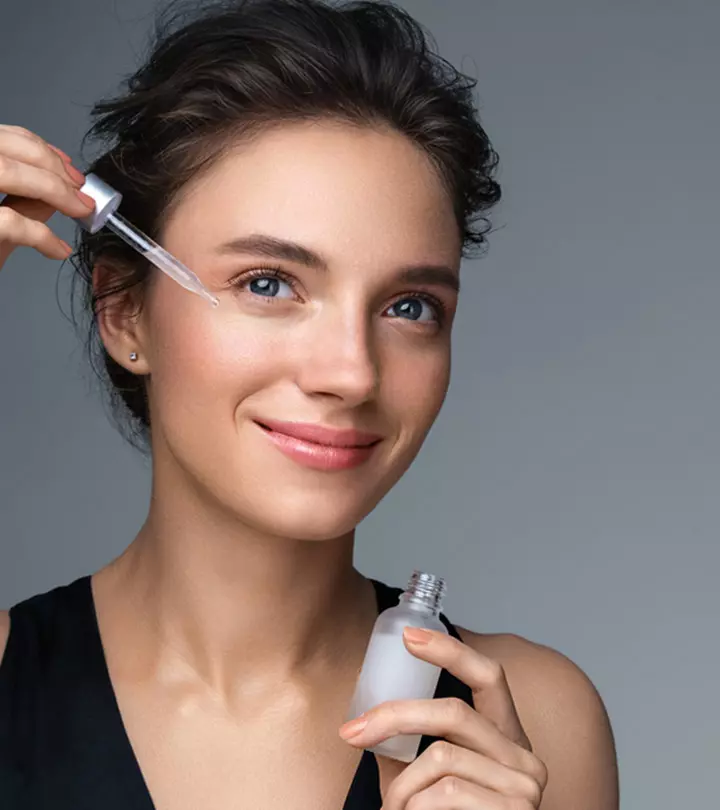
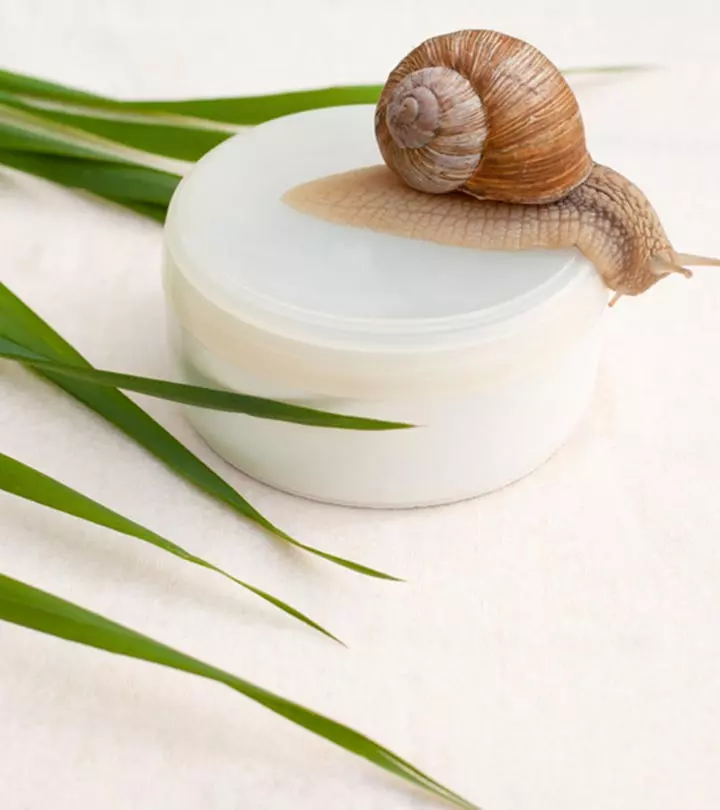
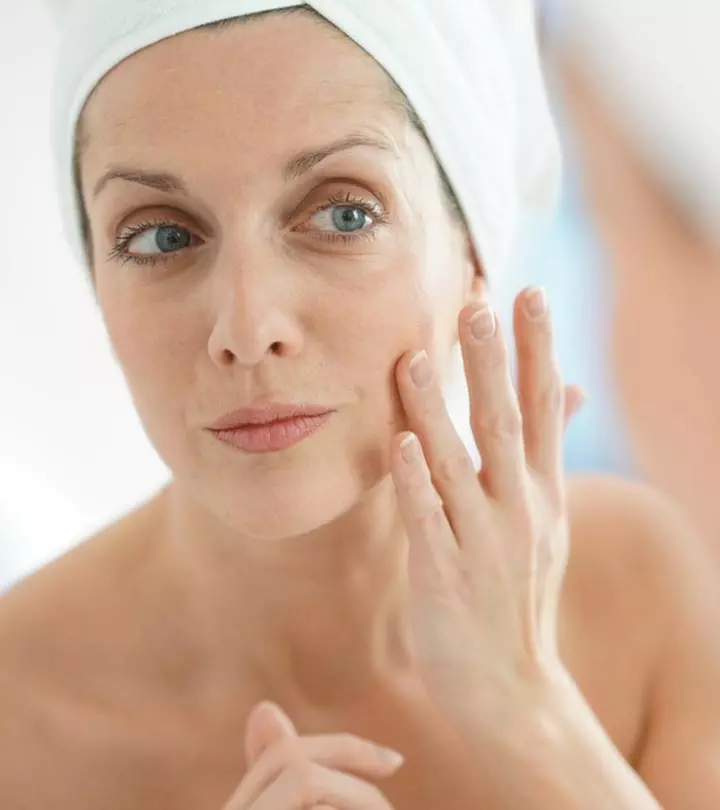
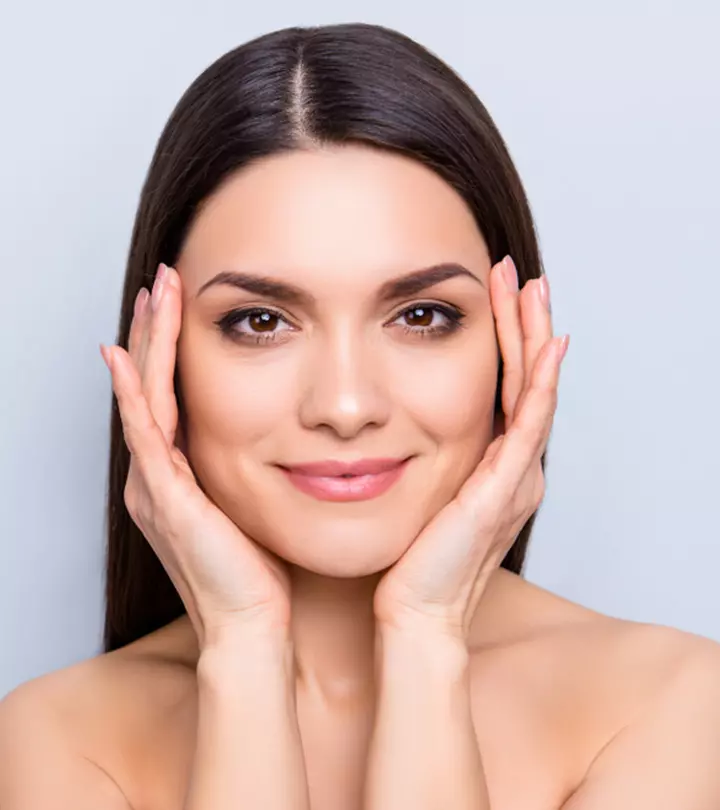

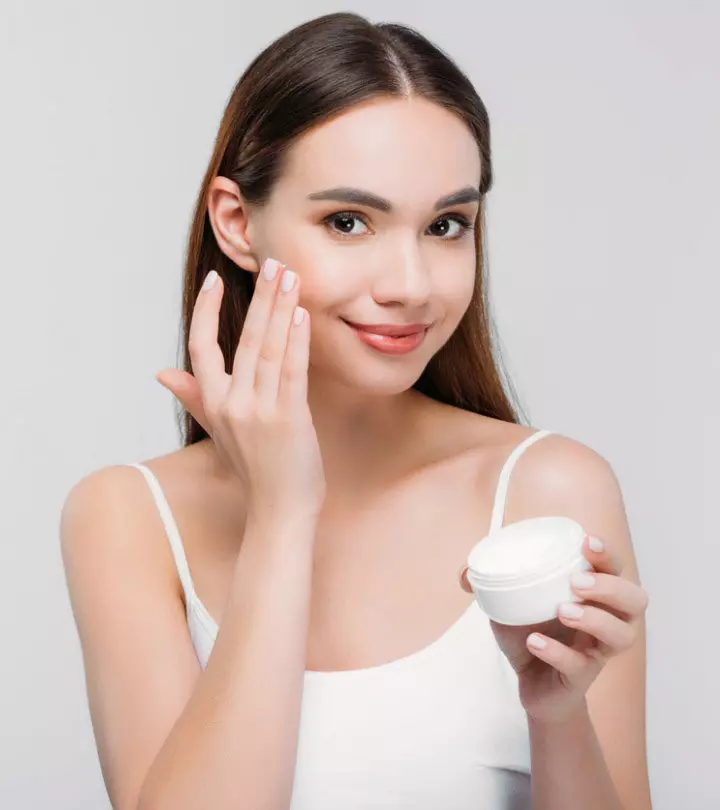

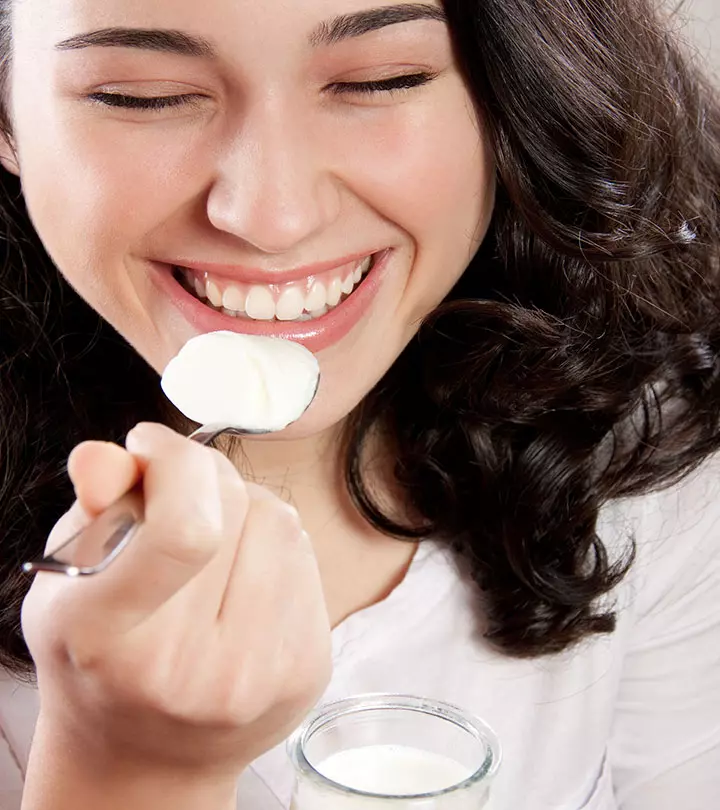
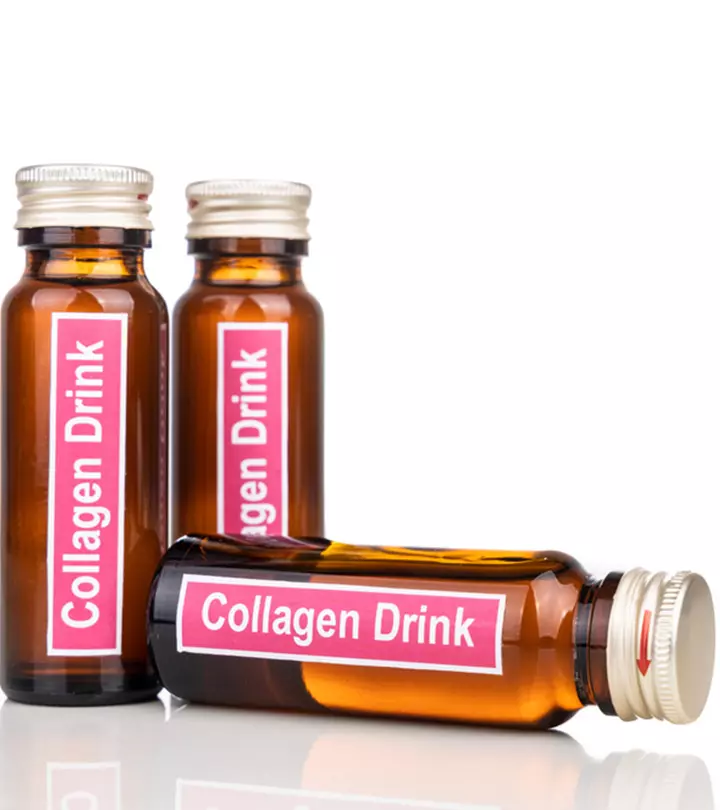

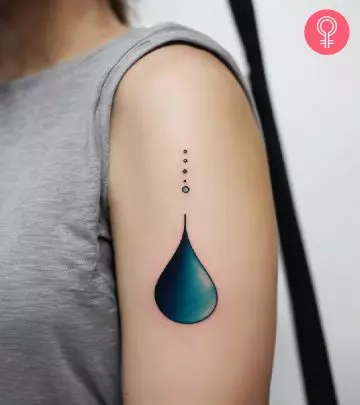


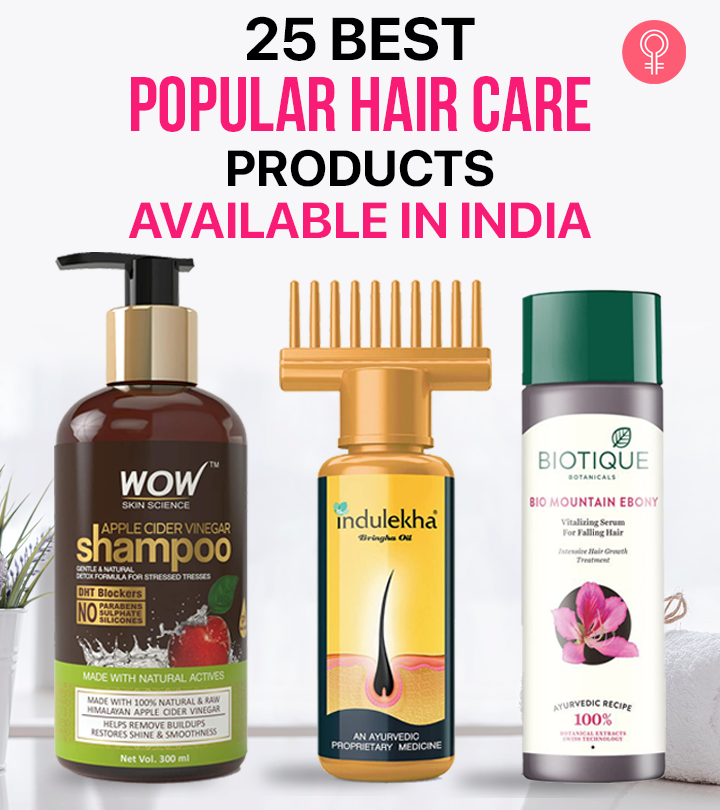





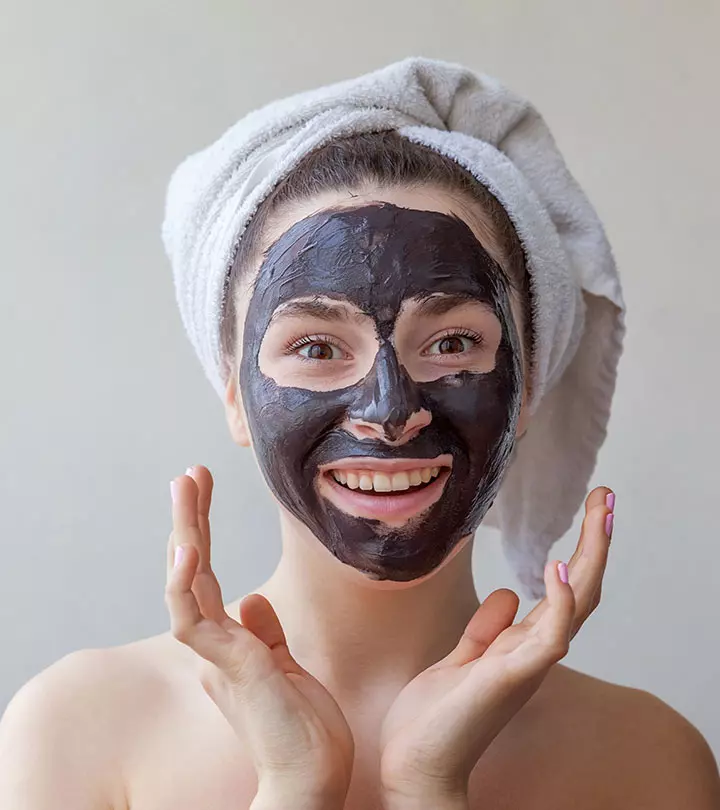
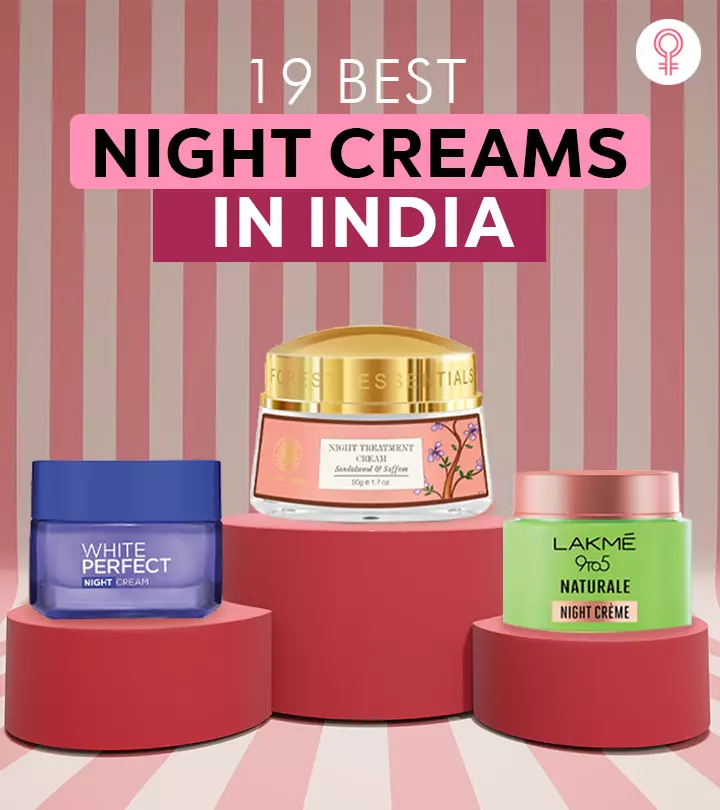
Community Experiences
Join the conversation and become a part of our empowering community! Share your stories, experiences, and insights to connect with other beauty, lifestyle, and health enthusiasts.